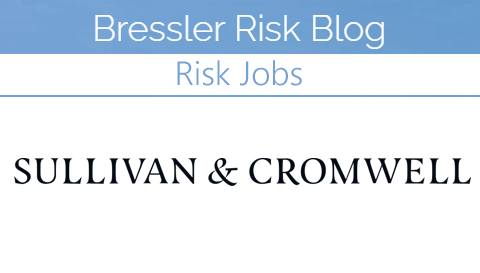Disqualifications Debated — Estate Matter Raises Former Client Conflicts Clash, New Zealand Supreme Court Denies Conflict of Interest Appeal
Posted on
“Colorado justices tell Arapahoe County judge to reconsider disqualification of law firm from case” —
- “The Colorado Supreme Court on Monday directed an Arapahoe County judge to reconsider his prior decision to remove a law firm from a civil lawsuit due to a conflict of interest. In an unsigned Sept. 8 order, the justices laid out specific issues the judge needed to examine before concluding that the work an attorney performed years ago for one set of litigants precluded his new law firm from representing the opposing litigants in a different lawsuit.”
- “In 2016, the family of oil and gas executive Jack Grynberg filed suit over the ownership and control of his companies. Evidence indicated Grynberg’s cognitive decline resulted in him falling victim to scams. Grynberg, who died in 2021, lost the litigation.”
- “In 2022, the administrator of his estate filed a malpractice suit against Dorsey & Whitney LLP, the law firm that represented Grynberg. The complaint alleged they ‘pursued scorched-earth litigation tactics’ that isolated Grynberg from his family and prevented him from receiving medical care for his cognitive issues.”
- “Two of Grynberg’s adult children moved to intervene and sought to remove the lawyers at Richards Carrington, LLP, who were representing Dorsey & Whitney. They argued one partner at the defense firm, Michael Mulvania, represented them in the prior litigation and there was a ‘substantial risk’ he possessed confidential information that was relevant to the new lawsuit.”
- “In an April 8 order, District Court Judge Don J. Toussaint agreed with the Grynberg siblings.”
- “‘Mulvania substantially participated in the 2016 lawsuit. Mulvania billed 812.5 hours for work, and he was privy to privileged and confidential information throughout his representation in that matter,’ wrote Toussaint. ‘Based on the totality of the circumstances, disqualification is warranted.'”
- “Richards Carrington turned to the Supreme Court. The attorneys argued any confidential information had already been disclosed publicly, that the firm had already implemented an ‘ethical screen’ excluding Mulvania from the case and that Mulvania had ‘limited involvement’ in the original litigation over Grynberg’s companies.”
- “‘To hold otherwise — in a case where nonparties have moved to disqualify counsel based upon the most attenuated and remote of circumstances — would dangerously expand the scope of permissible disqualifications, effectively prohibit ethical screens in any circumstance, and prejudice law firms of all sizes while incentivizing and proliferating the use of disqualification motions as litigation tactics,’ wrote the attorneys.”
- “The Grynberg children, the estate administrator and Toussaint all responded to Richards Carrington’s petition to defend the decision. Generally, they argued Mulvania was potentially exposed to confidential information about the Grynberg children’s impressions of their father’s cognitive capacity. Mulvania’s new firm could use that knowledge to expose potential inconsistencies in the Grynberg children’s accounts to defend against the malpractice case.”
- “Yet, ‘Mulvania’s duties to Rachel and Stephen (Grynberg) as his former clients would prevent him from revealing the confidential information that Rachel and Stephen disclosed to him (or didn’t), thereby compromising his duty to zealously represent the Dorsey Defendants. That is a textbook former-client conflict of interest,’ wrote attorneys for the estate administrator.”
- “Richards Carrington countered that there were no facts ‘or even plausible theories’ that the Grynberg children would have disclosed relevant and confidential information to Mulvania during the short time he worked on the prior litigation. Moreover, the Grynbergs had already commented publicly on the complained-about details.”
- “The Supreme Court’s order noted the rules of professional conduct do typically prohibit a lawyer in one case from going up against their former client in the ‘same or a substantially related matter.’ But rather than rule on the disqualification issue, the justices ordered Toussaint to address additional relevant factors before he disqualified Richards Carrington.”
“Supreme Court denies leave to appeal in case alleging lawyer’s conflict of interest” —
- “New Zealand’s Supreme Court has refused leave to appeal requested by an applicant alleging a conflict of interest or apparent bias against the chair of the respondent expert consenting panel, convened under the COVID-19 Recovery (Fast-track Consenting) Act 2020. “
- “In Glenpanel Development Limited v Expert Consenting Panel, [2025] NZSC 109, the matter revolved around the issue of whether to disqualify the panel chair due to a conflict of interest or apparent bias. “
- “A judge of New Zealand’s High Court saw no conflict of interest in:
- the panel chair’s status as a partner in law firm Brookfields Lawyers, which acted for a competitor to the applicant
- his role as an advisor who counselled the Auckland Council and Auckland Transport on the 2020 legislation’s meaning”
- “The High Court judge found no question of apparent bias or predetermination where there was no evidence that the applicant’s competitor was interested in opposing the development subject of the proceedings. The applicant appealed. New Zealand’s Court of Appeal agreed with the High Court judge and declined to disqualify the panel chair based on a conflict of interest or apparent bias. “
- “However, the appeal court allowed the appeal on other grounds. It directed the panel to reconsider the application in view of the Supreme Court’s ruling in Royal Forest and Bird Protection Society of New Zealand Inc v New Zealand Transport Agency, [2024] NZSC 26. “
- “The applicant alleged a live issue since the lawfulness of the panel chair’s conduct might impact the cost amount or require payment to the Environmental Protection Agency under the 2020 legislation’s processes for administrative cost recovery. “
- “The Supreme Court of New Zealand dismissed the application for leave to appeal. The Supreme Court noted that the chair has since resigned from the panel and that the 2020 legislation has since been repealed. “
- “The Supreme Court accepted that a question of general or public importance might have arisen concerning the tests for apparent bias and conflicts of interest for lawyers acting in a quasi‑judicial capacity as expert consenting panel members. “
- “However, the Supreme Court ruled that this issue was no longer live in this matter, given that the chair would not participate in the panel’s reconsideration. “
- “The Supreme Court found that the applicant appeared to have raised the issue of exposure to administrative costs as an afterthought. The Supreme Court noted that it had no information about the criteria applied or the amount potentially attributed to the appeal court’s refusal to disqualify the panel chair. “









